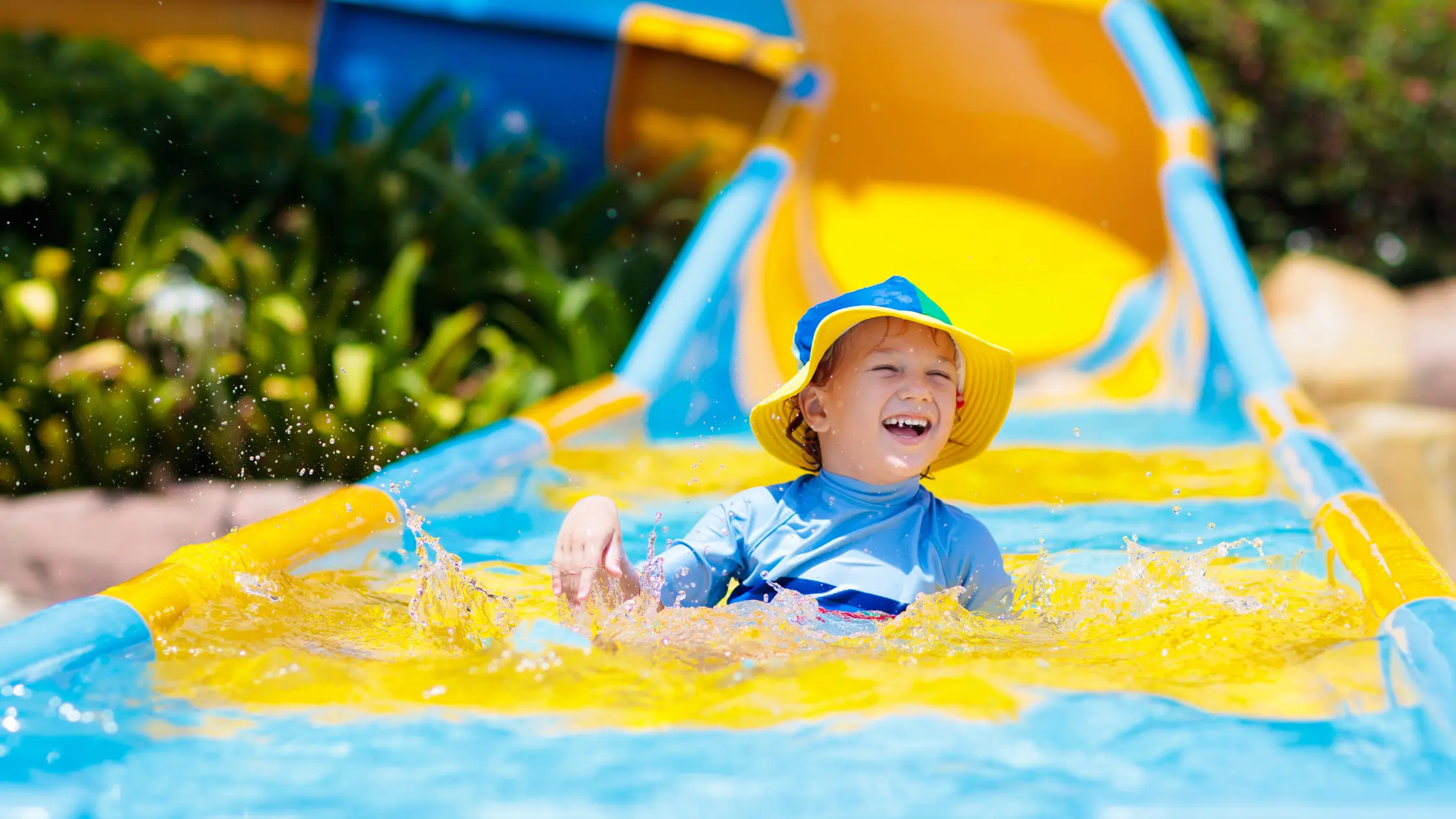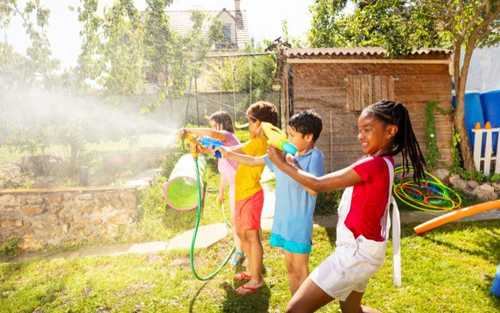How To Beat The Summer Slide


As the school year comes to an end, you might be starting to think of ways to beat the summer slide and avoid learning loss. While it’s very important to allow your child a well-deserved summer break, it’s also crucial to make sure that the skills they’ve gained in the past school year are retained.
Summer learning has many benefits, and arguably the most important one is that it prevents regression and sets your child up for academic success in the new school year!
But before we dive into the fun stuff…
What is the summer slide?
The summer slide is a term used to describe the knowledge regression that can happen during the summer months when children don’t attend school or take a break from homeschool. Without regular practice, skills like reading, writing, and math can start to fade, making it harder for children to pick up where they left off when school resumes.
However, not everyone agrees on how significant this learning loss really is. Some researchers argue that the summer slide is overstated and that its impact varies widely depending on factors like access to resources and family support. The term itself became widely recognized after studies in the 1990s highlighted summer learning loss as a concern for educators. While these studies showed measurable declines in math and reading skills over summer breaks, critics have pointed out potential flaws in methodology, such as small sample sizes or limited focus on certain demographics.
Regardless of where you stand on this debate, most parents and educators agree that keeping kids engaged in learning during the summer months is beneficial—not just for academic retention but also for fostering curiosity and creativity.

Who is affected by the summer slide?
The summer slide doesn’t affect all children equally. Research shows that some children are more likely to experience significant learning loss during the summer months due to limited access to educational resources like books, enrichment programs, or technology. On the other hand, children with access to summer camps, libraries, or structured activities may even gain skills during this time.
Other factors contributing to summer slide risk include:
- Age: younger children may be more susceptible as they’re still building foundational skills.
- Learningenvironment: children without structured activities or educational engagement are at higher risk.
Understanding these factors can help you tailor your approach to keeping your child engaged over the summer.
Long-term effects of the summer slide
While a single summer of learning loss may seem manageable, repeated instances of summer slide can have significant long-term effects on a child’s academic journey. Research shows that cumulative skill loss over multiple summers can lead to widening achievement gaps between students who engage in summer learning activities and those who do not.
The snowball effect
The "snowball effect" refers to how small learning losses compound over time. For example, if a child loses math skills one summer and struggles to catch up in September, they may fall further behind when new concepts build on those missed foundations. This pattern can continue year after year, making it increasingly difficult for students to close the gap.
Academic trajectory
Repeated instances of summer slide can alter a student’s overall academic journey. Students who consistently fall behind during summers may develop lower confidence in their abilities or lose motivation for school altogether. This highlights why proactive measures (like engaging in summer learning activities) are so important for long-term success.
Summer learning activities to beat the slide
Here are some of the most effective (and fun!) ways to keep your child learning all summer long:
Try summer reading challenges
Who doesn’t love some friendly competition? This activity encourages your child to keep their reading skills on track while providing a visual way of measuring progress!
A summer reading challenge can focus on:
- The number of pages read per day
- The number of books read during summer break
- Audiobooks listened to while traveling or doing other activities
Make it even more exciting by setting up a reward system for milestones like 10, 50, or 100 pages read. You can also join our summer reading program for fantastically fun learning!
Take a day trip to your local library or museum
Some days are too hot (or rainy) for outdoor fun—why not visit your local library or museum? These trips are packed with opportunities for learning and can spark your child’s curiosity about new topics. Libraries often host free events during the summer, such as story time sessions or craft workshops.
Allow positive screen time
Screen time doesn’t have to be a bad thing! There are countless educational programs and apps designed specifically to prevent summer learning loss. For example, Night Zookeeper uses gamification to make reading and writing fantastically fun for kids!

Create flashcards
Flashcards are a simple yet effective way to reinforce key concepts like sight words or math facts. They’re also portable - perfect for road trips or waiting in line at an amusement park!
Keep workbooks & worksheets handy
Workbooks are great tools for preserving academic skills. For younger children, coloring books can develop fine motor skills. For older kids, workbooks can consolidate knowledge from the previous school year while introducing new topics they’ll encounter in the fall.
Play games that stretch the mind
Games like I Spy aren’t just fun - they’re educational too! This classic game helps develop observation and communication skills while keeping kids entertained during long car rides.
Write using creative writing prompts
Writing is one of the easiest skills to lose over summer break. Keep your child engaged by using creative writing prompts tailored to their grade level. For visual learners, picture writing prompts are especially effective at sparking ideas.
How Night Zookeeper can help

If you’re looking for a flexible and engaging way to beat the summer slide, Night Zookeeper could be just what you need! Our award-winning program combines bite-sized games with interactive lessons designed by education experts. It’s perfect for keeping kids’ reading and writing skills sharp without feeling like traditional homework.
Night Zookeeper also offers:
- Adjustable difficulty levels
- Simplified versions for younger learners
- Personalized feedback on every piece of writing
- A safe online environment where creativity thrives
Plus, our program adapts to your child’s unique learning style - because no two kids learn exactly the same way! Sign up today for a 7-day free trial and make this summer one full of fun and growth.
Got any questions about our program? Reach out to us at support@nightzookeeper.com, or via our social media pages:


Make Reading & Writing Fantastically Fun!
- Award-winning reading & writing program for kids
- Improves spelling, grammar, punctuation & vocabulary
- Over 1,000 different learning games and activities


“My child hates writing.” What do I do?


20 Summer Writing Prompts For Kids


Top Summer Learning Activities


